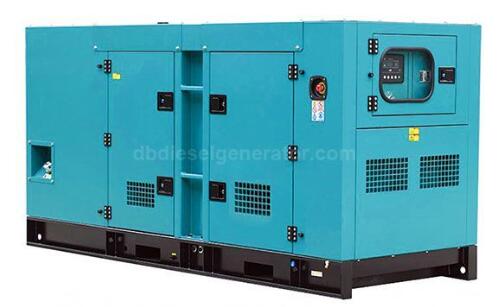Canopy gensets are an essential solution for providing reliable power in various settings, from construction sites to residential areas. These generators, enclosed in a protective canopy, offer numerous advantages in terms of noise reduction, weather protection, and security. This article delves into the features, benefits, and applications of canopy gensets.
Features of Canopy Gensets
Canopy gensets are equipped with several key features that make them highly effective and reliable. The canopy, typically made from soundproof and weather-resistant materials, encloses the generator, providing multiple benefits.
Noise Reduction
One of the primary features of a canopy genset is its ability to significantly reduce noise levels. The soundproof canopy absorbs and dampens the noise produced by the engine, making it suitable for use in noise-sensitive environments such as residential areas, hospitals, and schools. This feature is crucial for maintaining a quiet and comfortable atmosphere.
Weather Protection
The robust canopy provides excellent protection against harsh weather conditions. Whether it's rain, snow, or extreme heat, the canopy ensures that the generator remains operational and protected from environmental damage. This feature enhances the durability and lifespan of the genset, making it a reliable power source in various climates.
Enhanced Security
Canopy gensets offer enhanced security by protecting the generator from theft and vandalism. The sturdy enclosure can be locked, preventing unauthorized access and ensuring that the generator remains safe and secure. This is particularly important for gensets used in remote or unattended locations.
Benefits of Using Canopy Gensets
Canopy gensets provide several benefits that make them a preferred choice for many applications.
Portability and Ease of Installation
Canopy gensets are designed to be portable and easy to install. The compact and enclosed design allows for straightforward transportation and setup, making them ideal for temporary power needs at construction sites, events, and remote locations. Their portability ensures that power is readily available wherever and whenever it is needed.
Fuel Efficiency and Low Emissions
Modern canopy gensets are engineered for fuel efficiency and low emissions. Advanced engine technologies reduce fuel consumption and minimize environmental impact, making these generators a more sustainable choice. This is especially important for organizations aiming to reduce their carbon footprint and adhere to environmental regulations.
Reliability and Performance
Canopy gensets are known for their reliability and consistent performance. They are designed to provide uninterrupted power supply, ensuring that critical operations continue without interruption. This reliability is crucial for applications such as hospitals, data centers, and emergency services where power outages can have severe consequences.
Applications of Canopy Gensets
Canopy gensets are versatile and can be used in a wide range of applications.
Construction Sites
Construction sites often require a dependable power source for tools and machinery. Canopy gensets provide the necessary power while withstanding the rigors of outdoor environments. Their portability allows them to be moved easily as work progresses across the site.
Events and Outdoor Activities
For events and outdoor activities, canopy gensets offer a convenient power solution. They ensure a steady power supply for lighting, sound systems, and other equipment, contributing to the smooth running of events such as festivals, concerts, and outdoor weddings.
Residential and Commercial Backup Power
In residential and commercial settings, canopy gensets serve as an effective backup power source during outages. Their quiet operation and reliable performance make them suitable for neighborhoods, office buildings, and retail establishments, providing peace of mind and continuity of operations.
Selecting the Right Canopy Genset Supplier
Choosing the right supplier for canopy gensets is crucial to ensure you receive a high-quality, reliable product. Look for a supplier with a strong reputation and extensive experience in the industry. A good supplier will offer comprehensive support, from helping you select the right genset for your needs to providing maintenance and service options.
If you have any questions or need assistance in selecting the best canopy genset for your application, don't hesitate to contact us. A reliable supplier will be ready to help you find the perfect solution to meet your power needs and ensure that you have all the necessary information for proper operation and maintenance.

Comments
Post a Comment